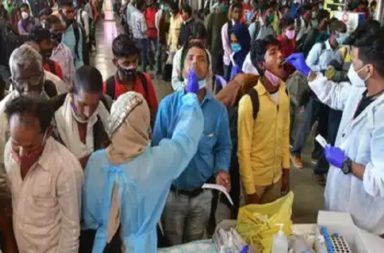The United Nations World Food Programme (WFP) which was awarded the Nobel Peace Prize last week for its efforts to prevent the use of hunger as a weapon of war and conflict, said it has so far raised $1.6 billion. The WFP will need to raise $6.8 billion over the next six months to avert famine amid the COVID-19 crisis, the agency said recently.
“We’ve got a lot more money to raise to make certain we avert famine,” David Beasley, executive director of the WFP, said at a conference on Tuesday organised by the UN’s Food and Agriculture Organization (FAO). Beasley noted that seven million people had died from hunger this year as the COVID-19 pandemic – which could double hunger worldwide – claimed a further one million lives.
Beasley said 7 million people had died from hunger this year, even as the COVID-19 pandemic claimed a further 1 million lives worldwide. But he warned that the pandemic would make things worse in the long term. “If we don’t sort out COVID, (the) hunger death rate could be 3, 4, 5 times that,” said Beasley. World hunger was on the decline for several decades but is it now on the rise again since 2016, driven by both conflict and climate change.
The Rome-based WFP says it helps some 97 million people in about 88 countries each year, and that one in nine people worldwide still do not have enough to eat. After declining for several decades, world hunger has been on the rise again since 2016, driven by conflict and climate change.
The agency, the world’s largest humanitarian organisation, is funded entirely by donations. It provides school meals to 17.3 million children globally and delivered 4.2 million tonnes of food to regions or countries in need in 2019. The WFP has dispatched medical cargoes to more than 120 countries during the pandemic and provided passenger services to ferry humanitarian workers where commercial flights were unavailable.





